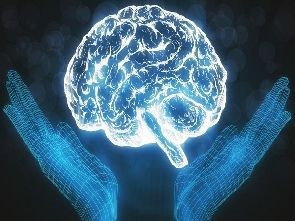 The 12-month project will see partners rolling out a series of activities to advocate for a policy
The 12-month project will see partners rolling out a series of activities to advocate for a policy
The Mental Health Society of Ghana (MEHSOG) with partner organisations has unveiled a project towards inclusive participation in national policy decision and promotion of human rights of mental health patients.
The 12-month project will see partners rolling out a series of activities to advocate for an inclusive policy of persons with life experience and promote respect of their rights among nonformal mental health practitioners in Ghana.
Addressing partners Thursday, MEHSOG Executive Secretary Humphrey Koffie, said a timetable detailing specific activities for implementation would soon be rolled out.
He also said dormant Self Help Groups (made up of people with lived experience and care givers) would be reorganised in 11 districts across the regions, while training would be organised for traditional and faith based leaders on human rights.
Mr Kofie stated that partners would also hold peer education review meetings among members of prayer camps and traditional healing camps, in an effort towards inclusion and protection of rights of people with psychosocial disorders.
He told the Ghana News Agency on the sidelines of the project inception meeting the coronavirus pandemic had impacted severely on people living with psychosocial disorders, their treatment and advocacy, causing severe depressions in several people.
“During the lockdown people were not able to move out… their social lives were truncated… all these things together with financial difficulties made more people become depressed,” he said.
Also speaking with the GNA, Nana K. Obiri, General Secretary of Ghana Federation of Traditional Medicine Practitioners Associations (GHAFTRAM), envisaged the project would address the many gaps in Ghana’s mental health area.
“We are looking forward to seeing this project address some of the inconsistencies relating to handling of people with lived experience and practitioners….and then make sure that some the prayer camps or traditional medicine centres are well resourced,” he said.
BasicNeeds Ghana, MEHSOG, GHAFTRAM, and Human Rights Advocacy Centre (HRAC) are working closely to execute the project.
Open Society Initiative for West Africa (OSIWA) is supporting its implementation with $60,475.00 to run in several districts in Northern, Central and Greater Accra regions.